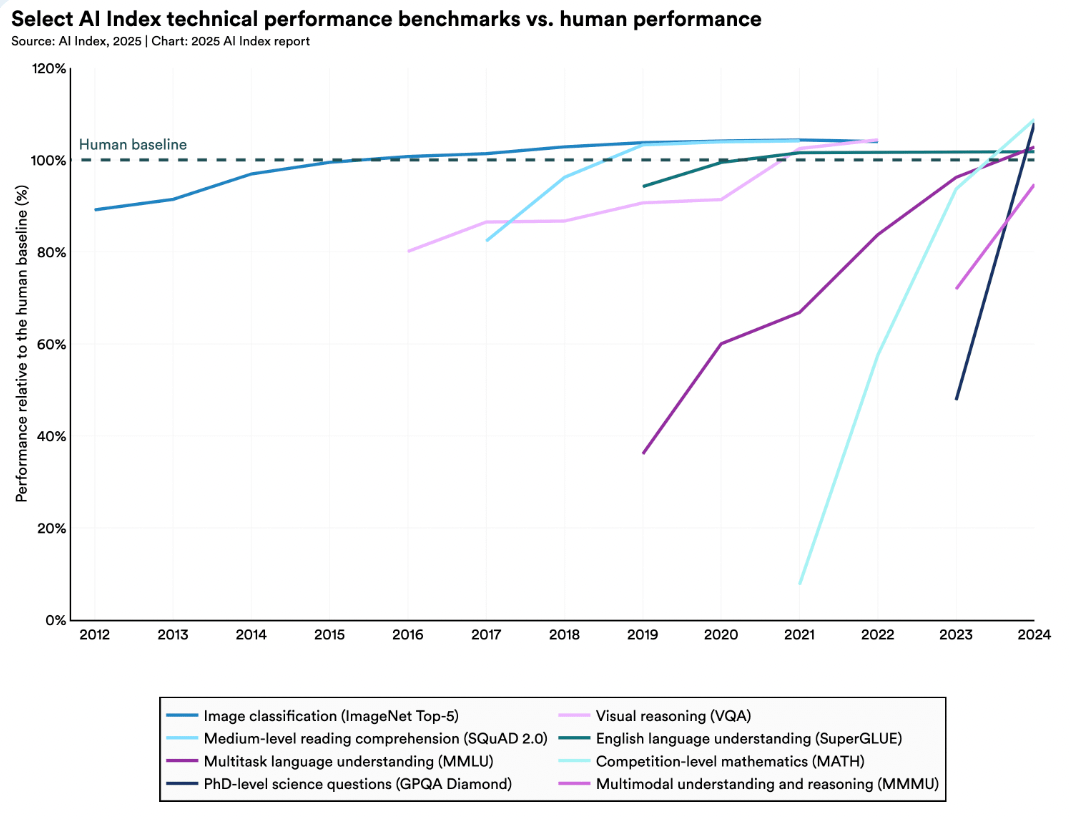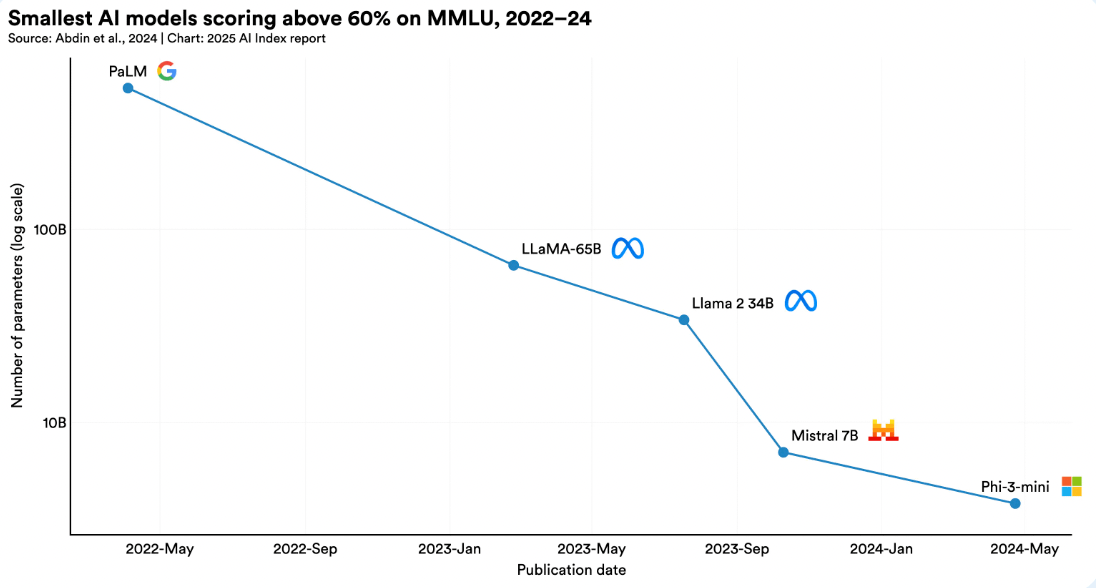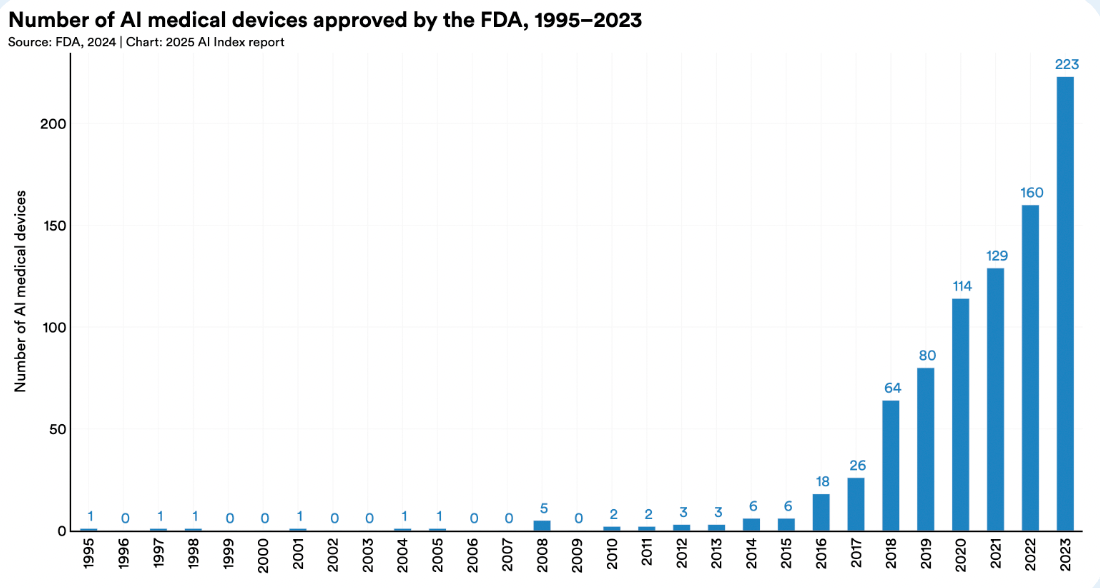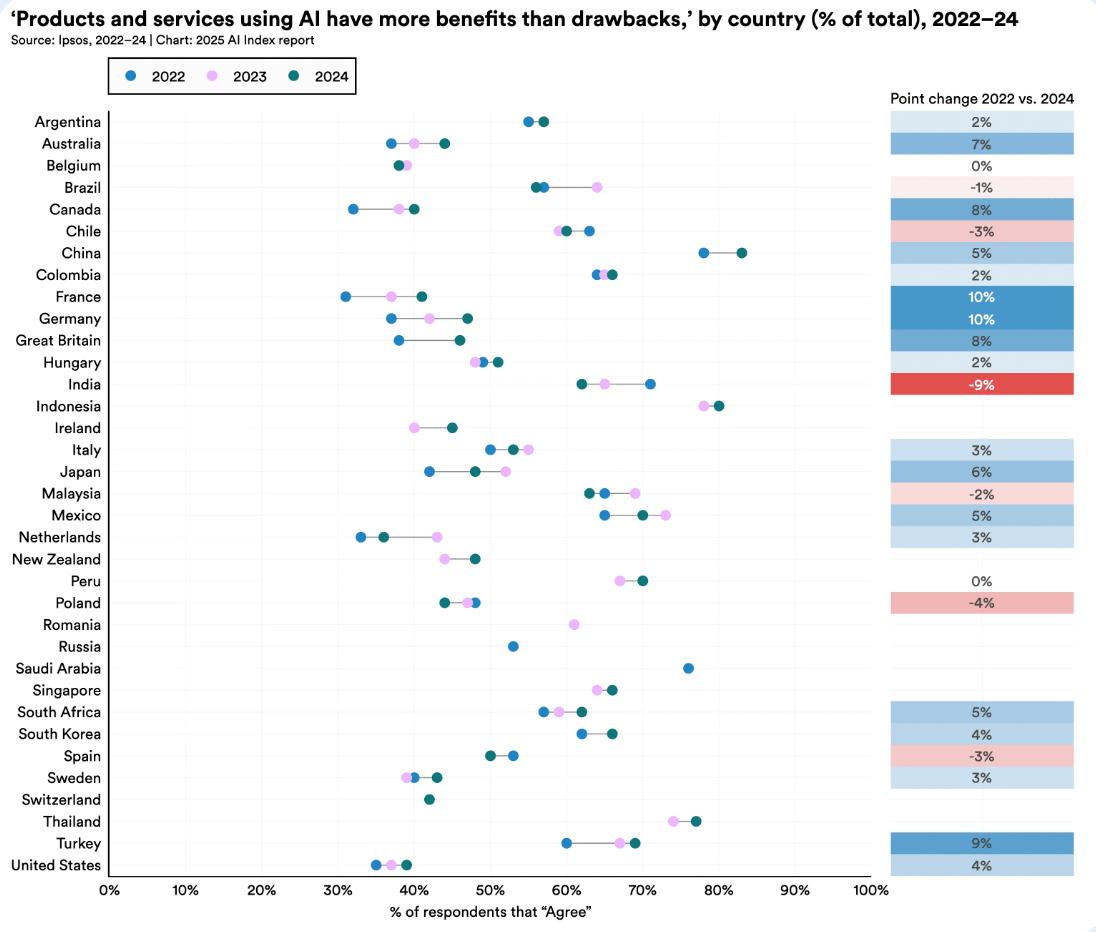Stanford HAI's 2025 Artificial Intelligence Index Report

Reprinted from panewslab
04/15/2025·10DAuthor: Stanford HAI (Stanford Artificial Intelligence Research Institute)
Compiled: Felix, PANews
Stanford HAI recently released the 456-page "2025 Artificial Intelligence Index Report". Here are some key points of the AI trend:
1. **Artificial intelligence has become much more powerful than
expected**
In the new benchmarks MMMU, GPQA and SWE-bench, AI performance has improved significantly: scores increased by 18.8%, 48.9%, and 67.3%, respectively. In addition to benchmarking, AI systems have made significant progress in generating high-quality videos, and in some cases, large language models (LLMs) have even surpassed humans in time-limited programming tasks.
Note:
MMMU is a carefully designed new benchmark designed for university-level multidisciplinary multimodal understanding and reasoning, aiming to evaluate the expert-level multimodal understanding of the underlying models in a wide range of tasks.
GPQA is a challenging dataset containing 448 high-quality and extremely difficult multiple-choice questions written by experts in different fields. Experts with or are pursuing a PhD in the corresponding field have an accuracy rate of only 65%, while skilled non-expert validators have an accuracy rate of only 34% despite taking an average of more than 30 minutes and having unrestricted access to the network.
SWE-bench is a benchmark for evaluating the performance of large language models (LLMs) on real-world software issues collected from GitHub.

2. **Artificial intelligence is more efficient, easier to obtain and
more affordable**
Small AI models with fewer parameters are increasingly capable of increasing: in just two years, the number of parameters has decreased by about 100 times, but their scores in the Large-scale Multitasking Language Understanding (MMLU) tests are still more than 60%.
The gap between open source and closed source models is also narrowing, with performance gaps falling from 8% to just 1.7% in some benchmarks.

In addition, the inference cost for systems reaching the GPT-3.5 level has dropped by more than 280 times from November 2022 to October 2024. At the hardware level, costs fall by 30% per year, while energy efficiency increases by 40% per year.
The threshold for advanced artificial intelligence is rapidly lowering. Not to mention the development of sparse models like DeepSeek, under the structure of Expert Mixed (MoE), only relevant parameters will be activated to answer user queries, making the whole thing more efficient.
Indeed, with smaller but more capable AI models emerging, the requirements for AI model training have been reduced, and cost-effective distributed training is expected to become mainstream in the next decade. Currently, some top projects are conducting related research based on different theoretical frameworks.
3. **Artificial intelligence is increasingly integrated into daily
life**
In 2023, the U.S. Food and Drug Administration (FDA) approved 223 artificial intelligence-assisted medical devices, compared with only six in 2015. On the road, self-driving cars are no longer experimental products: Waymo, one of the largest operators in the United States, provides more than 150,000 autonomous driving services a week, while Baidu's fleet of Apollo Go driverless taxis is now operational in several cities in China.

4. **Enterprise investment in the field of artificial intelligence
has increased significantly, driving record investment and application**
The use of artificial intelligence in business is also accelerating: in 2024, 78% of organizations are using artificial intelligence, compared with 55% the previous year. Meanwhile, more and more research has confirmed that artificial intelligence can increase productivity and help narrow the skill gap in the entire workforce.
In fact, as AI causes customer expectations to grow exponentially, existing solutions can appear outdated overnight, causing incumbent companies to lose their chances to adapt, and product market matching crashes occur more frequently.
5. **Despite the rising global optimism about artificial
intelligence, Asians are more optimistic about artificial intelligence**
In countries such as China (83%), Indonesia (80%) and Thailand (77%), most people believe that AI products and services have more benefits than disadvantages. By comparison, optimism remains far below that in places like Canada (40%), the United States (39%) and the Netherlands (36%).
However, this attitude is changing: some previously skeptical countries have seen significant growth in optimism since 2022, including Germany (10% growth), France (10% growth), Canada (8% growth), the United Kingdom (8% growth) and the United States (4% growth).

6. **The influence of artificial intelligence in scientific research
is increasing and has become an important driving force for promoting scientific progress.**
The growing importance of artificial intelligence is reflected in major science awards: two Nobel Prizes awarded research that contributed to deep learning (physics) and its application to protein folding (chemistry), respectively, while the Turing Prize recognizes groundbreaking contributions to reinforcement learning.
Obviously, artificial intelligence is developing rapidly at an exponential, unexpected speed, which means a lot to most people. Therefore, artificial intelligence security is becoming increasingly important. While artificial intelligence makes forgery easier, cryptography makes forgery more difficult. Looking forward to crypto projects that can leverage the native properties of blockchain (verifiability and transparency) to build practical solutions in this field.
Related Readings: Interview with Chris Dixon, founder of a16z: The intersection of artificial intelligence and encryption technology
